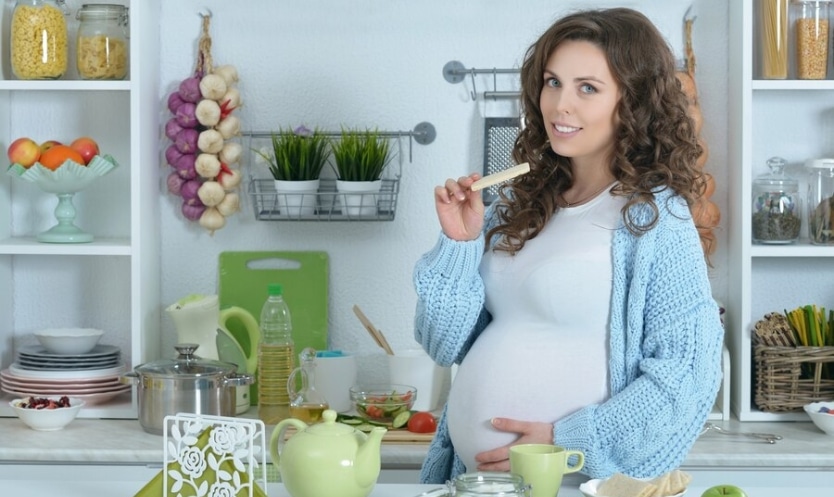Pregnancy is a critical time in a woman’s life that requires careful attention to nutrition. The foods a woman eats during pregnancy directly impact her health and the development of her baby. Eating a balanced diet with the proper nutrients is essential for supporting the baby’s growth and maintaining the mother’s well-being. This blog explores the vital nutritional needs of pregnant women, offering clear and helpful advice for making informed dietary choices.
Increased Caloric Intake
A woman’s body requires more energy during pregnancy to support the baby’s growth. While it’s not about “eating for two,” calorie needs increase, especially in the second and third trimesters.
- In the first trimester, calorie intake typically remains the same as pre-pregnancy.
- An additional 300-350 calories per day is recommended in the second trimester.
- By the third trimester, caloric needs rise to about 450 extra calories daily.
These extra calories should come from nutrient-dense foods rather than empty calories like sugary snacks. Opt for fruits, vegetables, whole grains, and lean proteins.
Key Nutrients for Fetal Development
Certain nutrients are crucial during pregnancy to ensure proper fetal development. These include:
- Folic Acid: This B vitamin is vital in preventing neural tube defects and supporting brain and spinal cord development. Pregnant women need 600-800 mcg daily in leafy greens, citrus fruits, and fortified grains.
- Iron: Iron is essential for producing hemoglobin, which helps carry oxygen to the mother and baby. Pregnant women should aim for 27 mg daily, which can be obtained from lean meats, spinach, and iron-fortified cereals.
- Calcium: A developing baby needs calcium for strong bones and teeth. The recommended intake is 1,000 mg daily, available in dairy products, leafy greens, and fortified plant-based milk.
- Vitamin D: Vitamin D aids in calcium absorption, promoting healthy bone development for the baby. Pregnant women need about 600 IU daily from sunlight exposure, fortified foods, and fatty fish like salmon.
Protein: The Building Block of Cells
Protein is crucial during pregnancy for the growth of tissues in both the mother and baby. It helps build muscles, skin, and organs for the baby while maintaining the mother’s muscle mass and strength.
- Pregnant women should consume around 70 grams of protein daily.
- Excellent sources include lean meats, poultry, fish, eggs, beans, tofu, and dairy products.
Incorporating various protein sources ensures you get a balance of essential amino acids needed for development.
Healthy Fats for Brain Development
Not all fats are bad. Healthy fats are necessary for pregnant women’s health. Fats play a significant role in the baby’s brain development, especially in the third trimester. Omega-3 fatty acids, in particular, are vital for eye and brain health.
- Aim for at least 200-300 mg of DHA daily, a type of omega-3 found in fatty fish like salmon and sardines.
- Plant-based sources include flaxseeds, chia seeds, and walnuts.
Women’s health specialists from Scotch Plains suggest avoiding trans fats and limiting saturated fats, which contribute to unhealthy weight gain and can impact heart health.
Hydration: The Importance of Staying Hydrated
Staying hydrated is just as important as eating the right foods during pregnancy. Water plays a crucial role in forming the amniotic fluid that surrounds the baby, aids in digestion, and helps nutrients circulate throughout the body.
- Pregnant women should aim to drink at least eight to ten cups of water daily.
- Herbal teas, milk, and fresh fruit juices can help meet hydration needs, but it is important to limit sugary and caffeinated beverages.
Proper hydration can also prevent common pregnancy symptoms like constipation and swelling.
Fiber-rich foods for Digestive Health
Pregnancy hormones often slow down digestion, leading to constipation. A fiber-rich diet helps keep the digestive system running smoothly, reducing the risk of discomfort.
- Pregnant women should aim for 25-30 grams of fiber daily in whole grains, fruits, vegetables, and legumes.
- Eating a variety of high-fiber foods supports digestion, helps manage blood sugar levels, and promotes satiety.
Fiber also plays a role in preventing excessive weight gain by helping pregnant women feel fuller for longer.
Foods to Avoid or Limit During Pregnancy
While it’s essential to focus on nutrient-rich foods, there are certain foods pregnant women should avoid or limit to prevent harm to themselves or their baby:
- Raw or undercooked meat, fish, and eggs: These can carry harmful bacteria that pose a risk of foodborne illness.
- High-mercury fish: Fish like swordfish, king mackerel, and sharks can contain high levels of mercury, which can harm fetal development.
- Unpasteurized dairy and juices can carry harmful bacteria like listeria, which can cause pregnancy complications.
- Excessive caffeine: Limit caffeine intake to less than 200 mg daily (about one 12-ounce cup of coffee) to avoid increasing the risk of miscarriage or low birth weight.
Making mindful choices about food safety is essential for a healthy pregnancy.
Maintaining proper nutrition during pregnancy ensures the health of both the mother and baby. A balanced diet rich in essential nutrients like folic acid, iron, calcium, protein, and omega-3 fatty acids will support fetal development and the mother’s well-being. Additionally, staying hydrated, consuming fiber-rich foods, avoiding certain risky foods, and consulting a specialist near Scotch Plains are crucial for a healthy pregnancy. Pregnant women can meet their nutritional needs and support a safe, healthy pregnancy journey with careful planning.
Eating right during pregnancy doesn’t have to be overwhelming. Focusing on nutrient-dense foods and understanding the body’s needs can help women enjoy a healthy and rewarding pregnancy.


